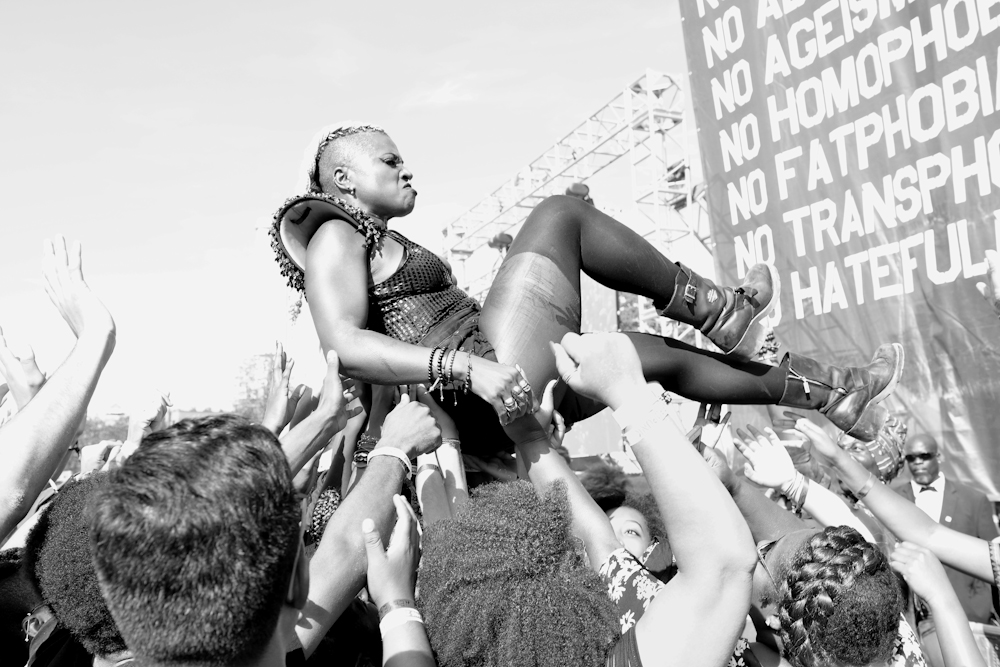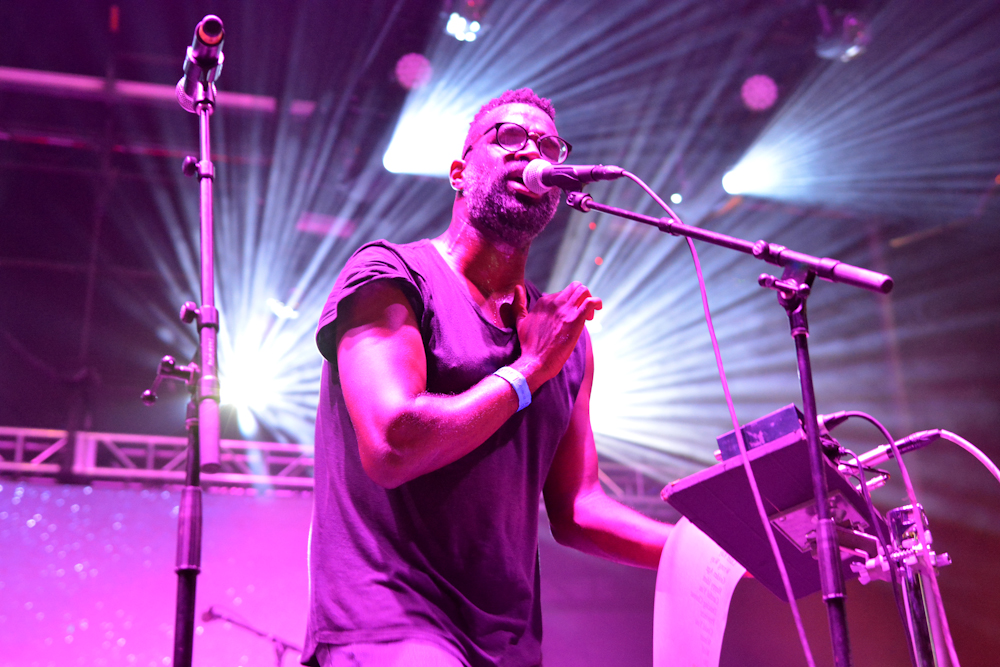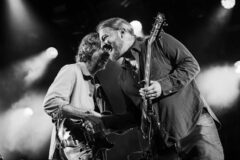You know when it’s Afropunk weekend in Brooklyn. The black women with brightly dyed hair, septum piercings, and round shades; the fellas in African-patterned garbs and braids jumbled over bandanas like cumulonimbus clouds; and the middle-aged rock fans wearing durags and carrying balled fists — none of them are rare finds in New York City. But on the two days that Afropunk posts up in Fort Greene, there’s an extra concentration of specifically styled African-Americans riding the 4, A, and Q subway lines, buying snacks at the 7-Eleven by Fulton Street, and strolling across the multi-lane Flatbush Avenue. This is the scene every year as they make their way to the concert-bazaar at Commodore Barry Park.
Afropunk, birthed by James Spooner’s 2003 documentary of the same name, is now a brand that anchors itself on activism, its flagship festival in Brooklyn, and the catchphrase “the other Black experience” — a synonym for loosely defined alternative-black culture. This year, the stakes for the fest felt particularly high because of its stacked lineup. After charging an entrance fee for the first time last year (and growing to 70,000 attendees despite the initial blowback), the utopia of sweat and cocoa butter, black protest and artistic eclecticism featured a roster dominated by artists who have at least brushed up against Grammy or MTV fame: Flying Lotus, Earl Sweatshirt, Tyler, the Creator, the Internet, and Ice Cube, to name a few.
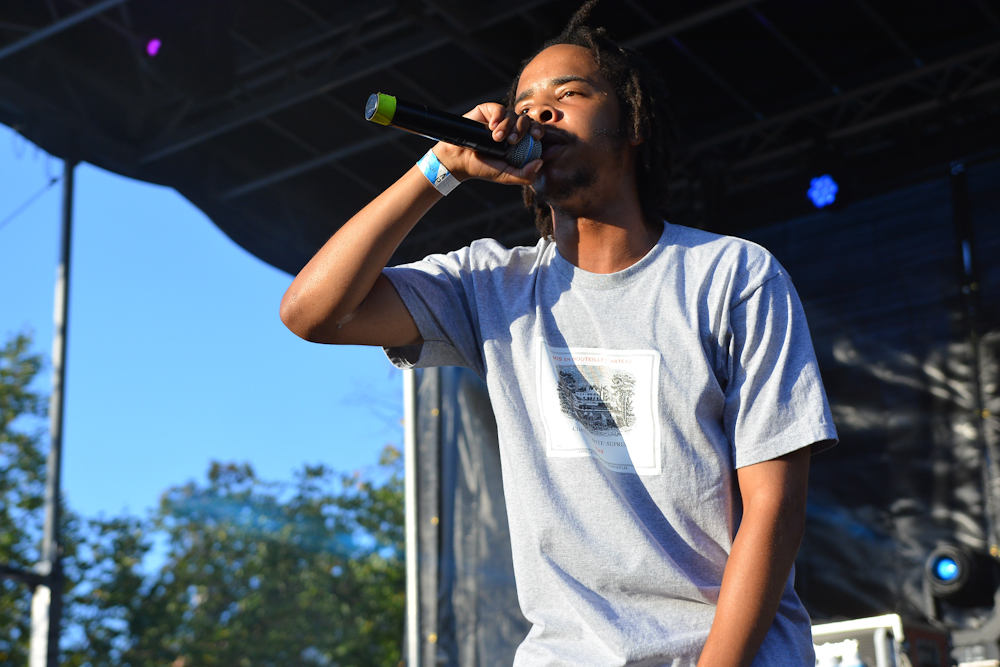
The two-day festival was and is conceptually over-ambitious: Organizers are condensing the multiplicities of blackness within a space that’s an average NYC park every other day. The scene this past weekend was laidback during the daytime heat. An attendee could easily shuffle between Shabazz Palace’s astral plane, Benjamin Booker’s Southern-bred garage rock, and Thundercat’s bass wizardry within an hour on Saturday. The next day, that same concertgoer could move from Skunk Anansie’s raucous anthems to Earl Sweatshirt sourly rapping Vince Staples’ “Hive” verse.
Commodore Barry Park filled to capacity on both nights and the number of stepped-on toes, accidental elbow bumps, and aggravated sorry’s piled up. Set times also ran late, leaving attendees with some unfortunate decisions to make. Because Flying Lotus’ Saturday set was more than a half-hour late, fans had to choose between his futuristic bop and TV on the Radio’s reverb-damaged expanse.
Sunday night’s situation was even more dire. The planned combo set that featured Fishbone, Living Colour, and Bad Brains — all seminal acts in their own right — began more than an hour past its scheduled start, causing a clash with the Janelle Monáe performance that was a few feet away. “Cult of Personality” played in cacophony with Monáe’s Jackson 5 cover, but her show — dedicated to the sistas — carried enough charismatic bombast to block out the seasoned supergroup’s distortion. The Internet weren’t as lucky; after a late start, the R&B group was forced to create intimate vibes with fragmented guitar swirling within earshot.
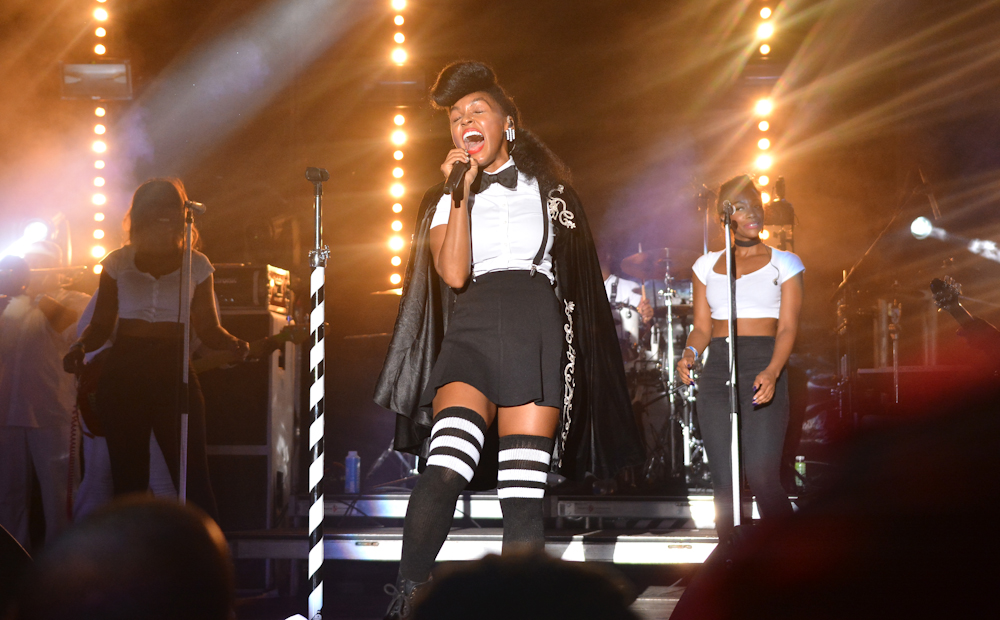
The structural and scheduling struggles didn’t distract from the main storyline Afropunk organizers were trying to push this year. The theme focused on the culture’s forefathers. Bookers were so wholeheartedly behind this concept that they gave Fishbone, Living Colour, and Bad Brains two hours on the main stage. The setup worked as an exercise in idol worship, and less like a sustainable fiesta; by the second hour, bodies moved between between head-thrashing thrills and out-of-body swaying.
George Clinton, whose P-Funk mythos was ground zero for a lot of alternative-black culture’s sensibilities, became the surprise star this year. After a brief Saturday afternoon set (highlighted by the gospel swells in “(Not Just) Knee Deep”), Clinton reappeared at the end of the black-rock mega-set for a glorious rendition of the Funkadelic classic “Cosmic Slop.” He then returned for Ice Cube’s festival-ending set for “Bop Gun (One Nation).”
Ice Cube was an exceptional headliner, too, rolling through decades of essentials before reuniting N.W.A bringing out MC Ren, DJ Yella, and his son, O’Shea Jackson Jr., to perform “Straight Outta Compton” and “Dopeman.” N.W.A’s recent Rock and Roll Hall of Fame induction and the box-office success of Straight Outta Compton has given Ice Cube the excuse to relive his pre-Are We There Yet?, Lench Mob-leading days. He looked like he was genuinely enjoying himself in this renaissance, and that’s good, because he has every right to. Few have done more for hip-hop, and in 2016, even fewer are doing more for Dickies shirts.
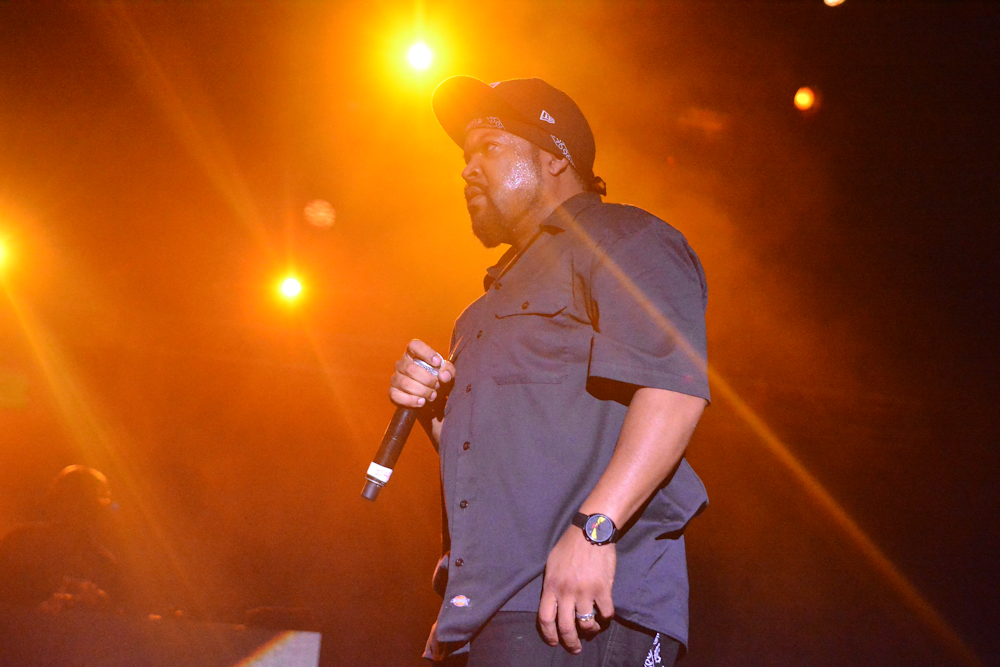
TV on the Radio — who appeared in the original Afropunk documentary — embodied Afropunk’s current ethos the previous night. Last spring, they played a show at Kings Theatre — a Flatbush venue that’s about a 20-minute drive away. There weren’t a lot of black faces who weren’t on the theater’s payroll; the crowd was as mixed as a Hershey’s Cookies & Cream bar. But because this was Afropunk, there was more cookie to complement the cream on Saturday night.
David Sitek’s effects-laden guitar kicked off “Young Liars” and captivated the audience: Some festivalgoers gently wavered from side to side, others raised their fists, and plenty of eyes twinkled in awe. The set wasn’t perfect — Kyp Malone and Tunde Adebimpe’s vocals stepped on each other during the frolicking “Golden Age” — but it proved that TVOTR’s appeal remains strong, and isn’t really all that esoteric. “Repetition” got the bodies moving regardless of skin color; “Wolf Like Me” still breaks teeth, ten years on. TV on the Radio are singular like that, but they’re no anomaly: In between songs, Malone took a moment to geek out over Bad Brains. “I wouldn’t be playing guitar if it wasn’t for that band,” he humbly said.
Many of Afropunk’s performers draw from the same set of influences, yet the artists who took the stage this past weekend are branded as part of an alternative culture — a deviation from the norm. Afropunk says it’s “the other Black experience,” but for two days within Commodore Barry Park, things that are seen as eccentricities elsewhere were accepted as essential expressions of blackness. This wasn’t just embodied by the artists who performed. It was on display a little after 7 p.m. on Sunday, when hips swung freely in the evening’s hot dust as Devonte & Tanto Metro’s “Everyone Falls In Love Sometimes” played.
